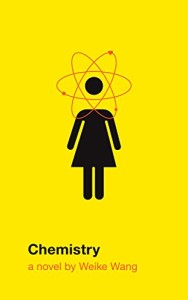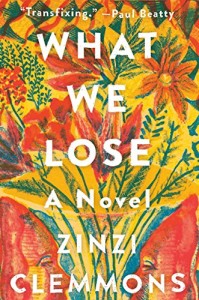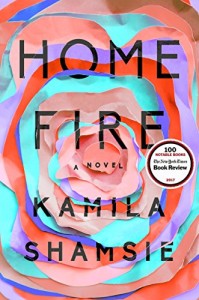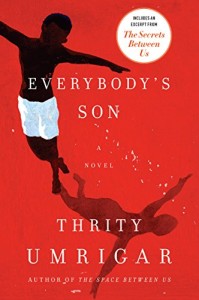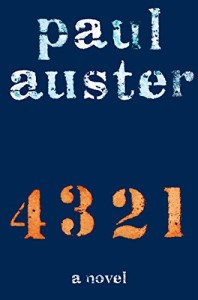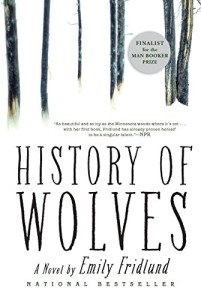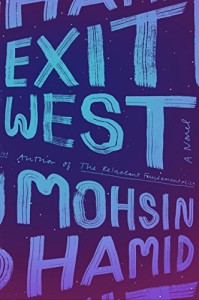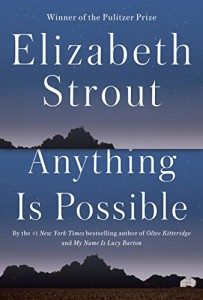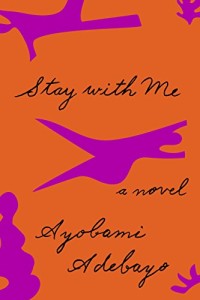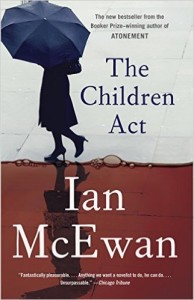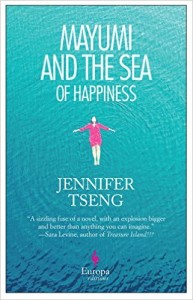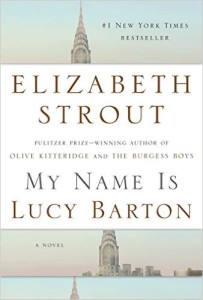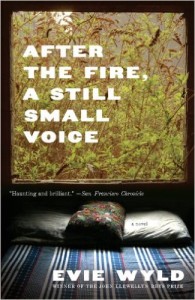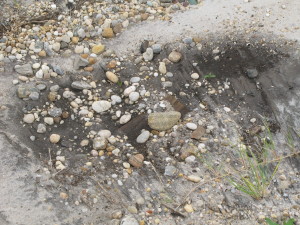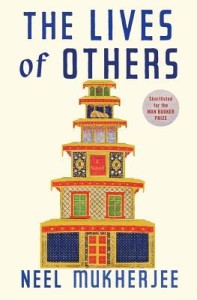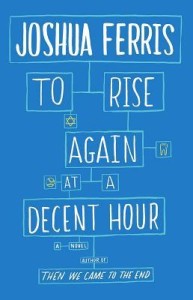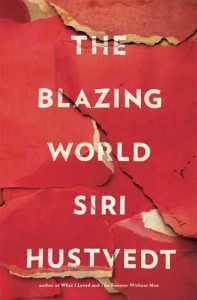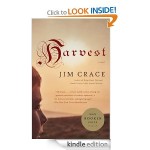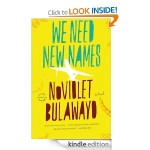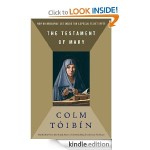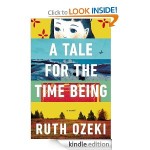Welcome to His Brother’s Keeper, a fictional mystery series set in 2000, in New York. I’ve decided to periodically lend my blog to a friend, Eva Hirschel. Eva doesn’t have a social media presence but she does have a mystery that she wanted to publish serially on-line, so I’m giving her a hand. (If you’re just tuning in now, I suggest that you start at the beginning). Here is Part II, Chapter 5. Enjoy!
Chapter Five
 There was another call from Simon on the hotel voice mail, telling me that Hannah was miserable, itchy, and whiny, but not to worry. I called back, and Simon assured me that everything was under control, but I could hear Hannah whimpering in the background. As soon as we hung up, I called the airline, then threw everything back into my bag, grabbed my laptop, my duffel and my purse, and left the room. The hotel clerk was ready to argue about the bill, but I managed to convince him that I was prepared to pay the full price, despite only having occupied it for several hours.
There was another call from Simon on the hotel voice mail, telling me that Hannah was miserable, itchy, and whiny, but not to worry. I called back, and Simon assured me that everything was under control, but I could hear Hannah whimpering in the background. As soon as we hung up, I called the airline, then threw everything back into my bag, grabbed my laptop, my duffel and my purse, and left the room. The hotel clerk was ready to argue about the bill, but I managed to convince him that I was prepared to pay the full price, despite only having occupied it for several hours.
Driving to the airport, I noticed that it looked like more rain was coming. Wasn’t that what a hurricane was, I asked myself, a lot of rain and roofs getting blown off of trailer homes? As long as I got to the airport quickly and could change my ticket, everything would be fine.
After returning the rental car and getting over to the main terminal, I took a look around. My self-appointed guardian was nowhere to be seen. In any of the work I had done so far, nothing had ever gotten quite this strange. I couldn’t decide if I was more scared or flattered that someone was looking out for me. That is, if he was for real. As I stood on line at the airport waiting to confirm the availability of a seat on the next flight, my fingers reflexively formed a protective shield around the torn newspaper article in my pocket
The overly cheerful airline representative got me a seat on a to for LaGuardia that was supposed to leave in forty-five minutes, and I raced through security and on to the gate. Still no sign of Eli Yankovski. He must have either abandoned me entirely, or else he was a better chameleon than I had thought possible. Intent on acting as if everything was normal, despite the fact that my baby was home with chicken pox, my husband was panicking, and there was a large man following me, I pulled out my paperback mystery and immersed myself in Rina Lazarus and Peter Decker’s latest case.
I was deeply into my book when I heard my flight number being called. I stood up and grabbed my bag before I realized that no one else was getting up. In fact, they were all groaning. Dragging my bag behind me, I shuffled over to the counter, where a dour airline employee with badly dyed hair informed me that due to hurricane warnings, the airport was temporarily closed, all incoming flights were being diverted, and there would be no outgoing flights for some time.
“Make yourself comfortable until we know more,” she barked.
Comfortable! Comfort and airports were two words that had nothing in common. At home I’d be comfortable. In my hotel room I’d be comfortable. Waiting at the airport indefinitely, I wasn’t going to be comfortable. I didn’t want to make myself comfortable, I wanted to get home. Damn this hurricane! Several deep breaths later, I called Simon to let him know that I was trying my best to get there, though I now didn’t know when I’d be landing. Then I called Jack Gelberman.
The answering machine picked up after four rings. What a surprise. “This is 813-867-3229. Please leave a message.” Short and to the point.
I decided it would be a wise decision to play it polite and calm, instead of letting him know how annoyed I was. “Hi, this is Abby Marcus. I’m on my way back to New York, but I’d really like to finish our conversation.” Even though I’d given him my business card, I repeated my cell number, and hung up. This job was going nowhere fast. Here I was, stuck in the airport because of a hurricane, leaving with no more information than when I’d come, nowhere closer to finding Sarah Gelberman, having been followed by either a lunatic or my fairy godfather. Not to mention having to pay the hotel bills at two hotels, neither of which I had had the pleasure of sleeping in.
A television nearby informed me that the Yankees were winning, making it look like the subway series was going to be a sure thing. Simon must be elated, that is, if he had taken time out from the chicken pox crisis to watch the game. I spent the next twenty minutes shifting uncomfortably in my seat and trying to re-focus on my novel. Then the international news came on. I had been so involved all day in the Gelbermans that I hadn’t heard the latest about Israel. The news wasn’t good, fighting was still going on and the situation was looking bleak indeed. After the international news, I decided to put my time to better use. My Frequent Flyer Club Card got me into the Aviator’s Club, with its free pretzels, sodas, and free wifi. Within minutes I was nestled into a corner workstation, surrounded on two sides by the jutting glass panes of the exterior walls and an unobstructed view of an eerily empty runway. Their coffee machine didn’t work, which almost caused me to completely lose my cool, but getting the better of myself, decided that caffeine in any form would do. A Diet Coke with lemon was now next to me, my laptop was plugged in and ready to go, and a bowl of pretzels was to the left of the computer. My notebook and pen occupied an empty seat, along with my purse. I was settled in for the duration.
A search on Leon Gelberman yielded the same Los Angeles phone number I had already called, which wasn’t surprising. I wrote down the number, but wasn’t yet ready to call. In a rush to gather as much information as possible, I didn’t allow myself to think about what it might mean if both Leib and Yankeleh were in fact alive, despite the plentiful stories of their deaths. It was too weird to be believable. Then on to Pinchas Seigel. There was no listing for a Pinchas Seigel in Los Angeles, also not surprising. He could be living with someone, or he might have another name. A search of the Los Angeles Times archives was unhelpful, and the website of the archives of the local Jewish newspapers was so poorly designed that it was impossible to get any actual information. Another search turned up a telephone number without an address for an Eliyahu Yankovski in Brooklyn, but no Eli Yankovski. I called the number for Eliyahu but it went unanswered. For now, it looked like I had hit a dead end.
I got up, stretched, and checked the departure screen. Nothing had changed since the last time I had checked. All incoming flights were delayed, and there was no new information. Outside, rain was coming down in great gusts, the palm trees swirling back and forth in the wind. This would have been a great night to curl up in bed with my novel and fall asleep with the lights on. Wary not to let myself get too sleepy, I exchanged my empty cup of Diet Coke for a new one, and settled back down at the computer. Itching for another task to keep me busy, I accessed my e-mail, and found several messages waiting. My mother had already written back—she and my father were still having a fabulous time eating, drinking and sightseeing their way across Europe. She reported that yes, I was right in remembering that I did have some Chasidic roots, yes, my father’s father had left Chasidism behind when he came to America in 1912, but no, she and my father had discussed it and were quite sure that his family didn’t come from Halizch. Leah had sent me the draft of her sermon for Friday night as promised, which I downloaded to read later, as I didn’t have patience right now for a sermon.
Then it was time to call Leon Gelberman.
“Yes,” a man answered when I asked to speak to Leon Gelberman. “Speaking.” I recognized the slightly accented voice of an older man from our previous conversation.
“Mr. Gelberman, hello, my name is Abby Marcus. I called you a few days ago, doing genealogical research. I want to make sure I understood you correctly. When I called, you told me you weren’t connected to the Gelberman family I was looking for. But having just read an article in the Los Angeles Times about your concern over a kiddush cup, I have to wonder what your connection really is to the Gelberman family of Halizch, Poland, and in particular to the Halizcher rebbe, Yosef Yehuda. Can you clarify this for me? Are you Leib Gelberman?
There was the sound of a throat being cleared, and muffled noises in the background.
“Yes, I am Leib. Yes.”
“The brother of Yankeleh?” I asked gently, knowing I was in danger of pushing too far.
“Yes, he was my brother.”
And before I could continue to ask questions, the line was disconnected.
I immediately called back.
“What do you want?” asked a brusque male voice. This voice was younger and smoother, with no trace of an accent.
“Leon Gelberman, please.”
“Yeah.”
“Mr. Gelberman?” I asked.
There was a moment of tense silence as I waited for a response.
“I’m Leon Gelberman. What do you want?”
There was no way this was the same man I had just spoken to, but two could play at the false identity game. “Mr. Gelberman, I’m Abby Simon, a reporter for the Jewish News in New York. We’re writing a piece on your conflict with the Skirball Museum. Would you mind clarifying a few points for us?”
His response was quick, almost too quick, conveying a sense that he was glad to get publicity, whether good or bad. “Sure, go ahead.”
“You are purported to have said that you are related to the last Halizcher Rebbe—”
“The late Rebbe Yosef Yehuda, zikaron l’vracha. Not the last, baruch hashem. Not the last.”
“I see. And how exactly are you related?” I asked, taking note of his repetition of the words “not the last.”
“I am his grandson, Leib Gelberman, son of Nossen Shlomo, zikaron l’vracha. I am all that is left.”
“I’m so sorry. How awful.”
“Awful is not the word.”
“No, of course not. I’m sorry. But can you tell me how you managed to survive?”
“They are many and they have evil on their side, but we have brains. Don’t you know that’s how Jews have always survived? Philistines, Edomites, Moabites, Romans, Greeks, Cossacks, Nazis, Hamas, whatever name they use, we have always survived. Are you Jewish Mizz Simon?” he asked, drawing out the Ms. as though it was painful to say, and continued on without waiting for an answer, his voice getting louder and more high-pitched. “Don’t you know that no matter what, we have always been able to outwit them? How else do we survive other than using our brains, our smarts, our yiddishe kups. Every day we place another foot in front of the other, it’s a victory, we’re spitting in their faces, pissing on their graves. Who’s alive and who’s dead, huh, Mizz Simon? We’re alive here, and Hitler is dead over there. And someday the world will know that that’s it, the Jews have had enough. But not yet, not yet, we’re not there yet, too many Jews are still trying to be like the goyim, still trying to make nice to the goyim so what, so they won’t kill us, won’t knife us in the back, won’t steal our possessions? But someday, tell this to your newspaper, someday we will rise up again, a strong, united people. We will give those dogs what they deserve. We will march with the Messiah into Jerusalem. We are the chosen people, and we must never forget that. That is my prophecy.”
I had never encountered a real life prophet before. This man was clearly disturbed, but passionate, and it was the passion that worried me. “How did you receive this prophecy?” I asked.
“How does one receive any prophecy? It came to me from God. But there are things I am not yet ready to discuss. Thank you for your time.” And with that, the phone went dead.
Anxiously chewing a piece of ice, I made notes of the conversation as I tried to make sense of it. The man I had spoken to the second time was definitely not Leon Gelberman, but who was this guy, and how dangerous was he? He sounded too fanatical to be taken seriously, but then so did Meir Kahana. Whoever he was, why was he pretending to be Leon Gelberman? I needed to get some background on Pinchas Seigel as fast as possible.
In the meantime, there was new e-mail in my in-box.
Meira was checking in, letting me know that she hadn’t yet uncovered anything definitive on the death or emigration of Ruchel Gelberman or her son, Leib. I almost spit out my Coke as I read that name in her e-mail. Leib. Could there have been two Leib Gelbermans? Of course it was possible that two sisters had both named their sons after their mutual grandfather, especially since he had been an illustrious rabbi. It made perfect sense that there would be two cousins with the same name. But could it be the same boy? Could he have been smuggled out of Europe after all, maybe by his uncle, and raised as their son in Palestine? It had to be one of these Leib Gelbermans who was currently causing problems in Los Angeles. And then it hit me—of course! It had been right under my nose a few hours ago, but I’d been too focused elsewhere. I pulled the crumpled article out of my pocket, and yes, sure enough, the conflict with Pinchas Seigel in Los Angeles was over a kiddush cup. That couldn’t be a coincidence. After my perusal of the Halizcher Yizkor Book, I couldn’t help but admit that there was a connection that revolved around an obsession with a kiddush cup.
Before I could let my thoughts wander further, I felt a tap on my shoulder. I turned around slowly, ready to scream if it was Eli Yankovski. But instead, I stared, speechless, at Jack Gelberman.
“I know, I know,” he began, speaking quickly. “I wasn’t very nice to you. But I had my reasons. Then, about an hour ago, someone slipped this under my apartment door.”
He handed me an envelope and I took it from him slowly, with hesitation.
“What is this?”
“Look at it. You’re the detective. At first I thought it was junk mail, or someone trying to harass me. That has happened from time to time. But when I saw what it was I thought I should come find you.”
A detective I wasn’t. If I had been a detective, I would have put on gloves and dropped it into a sterile ziplock bag. Instead, I turned it over. The envelope was addressed to Jack Gelberman, but there were no stamps. Inside was a newspaper article with a yellow post-it covering most of the text. The post-it contained my name, and the number and time of my flight, as well as the information that my flight was delayed and where I could be found. So much for thinking that I was no longer being followed. I tore off the post-it, and read the headline.
Mystery Surrounds Woman Found Near Gowanus Canal
An unidentified woman was found two days ago near the Carroll Street Bridge of the Gowanus Canal. A police car responding to a burglary came across the woman, who was dazed and appeared to have suffered minor injuries. The woman, who police estimate to be in her early twenties, was brought to Long Island College Hospital, where she was admitted and was being kept under observation. At approximately three o’clock yesterday afternoon she disappeared from the hospital. During her stay, the woman refused to speak to the police or any medical personnel. According to the police description, the woman is white, five feet five inches tall, weighs about 130 pounds, and has shoulder-length red hair. No identification was found on or near the woman, who police think may be a tourist. The woman was well-kept when discovered by the police and did not appear to be homeless. The police are asking the public to come forth with any information regarding the woman’s identity, or the identity of her assailants. The police are also looking for information regarding her current whereabouts, as she is in need of medical attention.
I looked up at Jack Gelberman, unsure what to say. There was not a doubt in my mind that this unidentified woman was Sarah Gelberman, and that it was probably my fault she was in trouble. In fact, given where she was found, she might have even been on her way to see me when she got attacked. The room swam and I swayed with it, my hand over my mouth, afraid that at any minute I was going to lose the contents of my stomach.
Jack Gelberman put a steady hand on my shoulder. He met my gaze, his blue eyes bright with fear but strangely also a sense of calm, of having long ago made peace with darkness and pain. Without a word, with only his eyes, he offered me support, strength and solace, a willingness to absorb some portion of my fear and suffering into himself. I felt my stomach loosen and relax, and the room stopped spinning. I took a deep breath that filled me to the soles of my feet, and exhaled. Then he sighed, let go of my shoulder, and looked out the window.
Suddenly the words and thoughts inside my head were chasing each other in their hurry to come out and I couldn’t stop myself from blurting out, “And there’s more—I think I found Leib.”
Now it was his turn to be surprised. His face registered terrible shock, becoming first tense and rigid, then completely slack, and ending in puzzlement. “What?”
“Leib, Leib Gelberman. Your brother, or maybe your cousin. Ok, I don’t really know yet who he is, but I know he’s part of this. You have to help me, we have to work together. This might not be your granddaughter, but you do know something about her. You know as well as I do that this is the young woman who came to me claiming to be Sarah Gelberman, otherwise you wouldn’t have come here. Someone has done something to hurt her, I don’t know why, and we need to stop this before things get worse.” I thrust the article from Eli Yankovski into his hand. “Read this.”
But he continued to stare out the window behind me, not looking at the piece of newspaper in his hand. He spoke slowly and deliberately, as if wanting to be extra sure that he was getting it right. “Yes, I’m sure she is your mysterious visitor. Yes, that’s why I decided to come here and find you. Yes, we have to work together. But you can’t have found Leib. It’s impossible.”
“I know, I know, everyone says that he died, and no offense but everyone says that you died too, and here you are. I don’t really understand it all, but I’m sure that this Leon Gelberman is Leib. Or at least a Leib. It has to be.”
Again, Jack Gelberman sighed. “Sometimes people see what they want to see, or sometimes they even re-write history so that they can live with it better. Things aren’t always what they seem. Whoever this man is, he’s not Leib. Of that I’m sure.”
Even through the lenses of his glasses his eyes were more sorrowful than I’d ever known eyes could be, bluer than the bluest sky and as deep as an ocean, so deep that I was afraid to look at him for fear that I would be completely swallowed up, yet unable to look away. It was as if he had somehow magically locked my eyes onto his. “You’ve figured out so much already,” he continued in a voice that was eerily calm, “I’m surprised that you haven’t figured this out yet. You seem to know all the legends about the Halizchers, but this you seem not to have noticed.”
Suddenly it was like a door had blown open and fresh air swept in to the room, and I understood. Yankeleh Gelberman didn’t have blue eyes. In fact, those blue eyes were such an important point in everything I’d read about the Gelbermans that I’d almost begun to think that the sole reason Leib was seen as the natural heir to the Halizcher dynasty instead of his older brother Yankeleh was because he, and only he, had his grandfather’s unique blue eyes. But now I understood. Not only was Sarah Gelberman not the Sarah Gelberman who was the granddaughter of Jack Gelberman, but the man across from me wasn’t who he claimed to be. “Oh my God. You may be Jack Gelberman,” I said to the man across from me, “But you’re not Yankeleh. It was Leib who had the blue eyes. You’re not Yankeleh, you’re Leib.”
And the man across from me shifted his gaze downward, lowered his head, and began to weep.
[To be continued…]
His Brother’s Keeper is entirely fictional. None of the characters or situations described in this series are based on real people or events. Copyright (c) 2015 by Eva Hirschel.
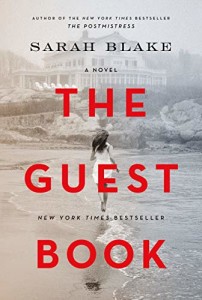 This is a story about a family, but also about a country, told over several generations. The Miltons are blueboods, the bedrock of America. They are the definition of privilege and noblesse oblige. Civility and honor are prized, along with knowing one’s place – the assumption being that a everyone should know their place and act accordingly. The family patriarch buys an island in Maine in the years preceding World War II, which is the backdrop to much drama and a deeply buried mystery which later gets unearthed by a granddaughter trying to make sense of the past. Blake does a magnificent job depicting the different generations, their relationships to each other, and their experiences of both the island and the family legacy. The island itself comes beautifully to life through the seasons and over the years, with incredibly gorgeous detail of the sea and local plant life and the items in the kitchen and in the bedrooms, the clothes that the characters wear and what each generation is drinking, so that the place itself a main character in this compelling tale. She expertly weaves together the threads of this story that are both highly personal to the Milton family, and also contain reverberations of American history and changing national mores. The personal is truly political here, even as individual family members try over the generations to cover up their complicity. But truth seeps out of the cracks of even carefully constructed lies and omissions, and is eventually uncovered.
This is a story about a family, but also about a country, told over several generations. The Miltons are blueboods, the bedrock of America. They are the definition of privilege and noblesse oblige. Civility and honor are prized, along with knowing one’s place – the assumption being that a everyone should know their place and act accordingly. The family patriarch buys an island in Maine in the years preceding World War II, which is the backdrop to much drama and a deeply buried mystery which later gets unearthed by a granddaughter trying to make sense of the past. Blake does a magnificent job depicting the different generations, their relationships to each other, and their experiences of both the island and the family legacy. The island itself comes beautifully to life through the seasons and over the years, with incredibly gorgeous detail of the sea and local plant life and the items in the kitchen and in the bedrooms, the clothes that the characters wear and what each generation is drinking, so that the place itself a main character in this compelling tale. She expertly weaves together the threads of this story that are both highly personal to the Milton family, and also contain reverberations of American history and changing national mores. The personal is truly political here, even as individual family members try over the generations to cover up their complicity. But truth seeps out of the cracks of even carefully constructed lies and omissions, and is eventually uncovered.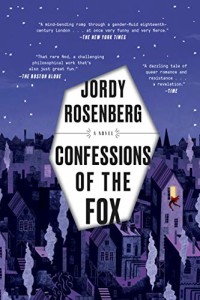 A conceptual novel if ever there was one, for most of the time I was reading this I couldn’t decide if it was brilliant or insane, or both. Based on the life of historical characters from 18th century London, Jack Sheppard, a reknown thief and jailbreak, and Edgeworth Bess, a famous prostitute, this novel is a combination of different styles, narratives, and narrators. It is about as queer a novel as is possible, dealing with queer identity and also breaking down boundaries about writing and novels and fiction, and so much more. Ostensibly, this volume is a research project being undertaken by a professor, Dr. Voth, whose career is shaky at best and whose heart has recently been broken. The reader comes to understand that the professor is trans, and that there is much going on in the Dr. Voth’s life beyond this project. The book is divided into two parts. One is a longlost autobiographical manuscript containing the story of Jack Sheppaard and Edgeworth Bess. The manuscript, which may or not be a hoax, reveals heretofore unknown information including that Sheppard had been born a girl, and other ways in which both were masters of gender-transformation and barrier-breakers. The other part of the book are Dr. Voth’s footnotes on the manuscript, which both comment on the manuscript, and within those margins also begin to shape a narrative about the professor’s own life and reality. If this sounds like a dizzying journey, it is. But it is well worth it. This boundary-pushing book is a delicious delight, at times quite funny and at other times heartbreaking. And, yes, it is absolutely brilliant.
A conceptual novel if ever there was one, for most of the time I was reading this I couldn’t decide if it was brilliant or insane, or both. Based on the life of historical characters from 18th century London, Jack Sheppard, a reknown thief and jailbreak, and Edgeworth Bess, a famous prostitute, this novel is a combination of different styles, narratives, and narrators. It is about as queer a novel as is possible, dealing with queer identity and also breaking down boundaries about writing and novels and fiction, and so much more. Ostensibly, this volume is a research project being undertaken by a professor, Dr. Voth, whose career is shaky at best and whose heart has recently been broken. The reader comes to understand that the professor is trans, and that there is much going on in the Dr. Voth’s life beyond this project. The book is divided into two parts. One is a longlost autobiographical manuscript containing the story of Jack Sheppaard and Edgeworth Bess. The manuscript, which may or not be a hoax, reveals heretofore unknown information including that Sheppard had been born a girl, and other ways in which both were masters of gender-transformation and barrier-breakers. The other part of the book are Dr. Voth’s footnotes on the manuscript, which both comment on the manuscript, and within those margins also begin to shape a narrative about the professor’s own life and reality. If this sounds like a dizzying journey, it is. But it is well worth it. This boundary-pushing book is a delicious delight, at times quite funny and at other times heartbreaking. And, yes, it is absolutely brilliant.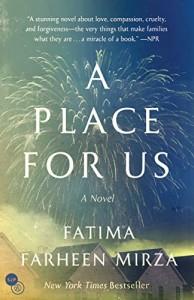 My first thought upon recalling the experience of reading this book is simply to take a deep breath. There is a reverence to this book, a deep respect for the tradition out of which this story comes. In many ways, this book belongs to a genre of stories of immigrants to the United States, with generational differences causing friction between parents and children and struggles over identity and belonging. Within that genre there is a sub-genre to which it belongs as well, the stories of immigrant families from India, with all the particulars of those stories. And while this particular book does belong to that genre and sub-genre, it is so much more. As the family gathers for a wedding, their love for each other comes to the surface along with secrets, anger, and hurts. As the narrative moves from the present to the past, and then into the future, betrayal after betrayal is revealed, and the scars become visible. Yet with all the drama, there is an understated stillness and quietude that threads through the complexity of this family story. Their Muslim faith is in the forefront of their behavior; their beliefs and theology is described in loving ways that allow for struggle and engagement rather than serving as a mere descriptive element. They want to be people of faith, and they are sustained by their faith, even as they worry about not living up to its highest aspirations. I found their struggle to be deeply moving, and the level of complexity with which they struggled to be quite compelling.
My first thought upon recalling the experience of reading this book is simply to take a deep breath. There is a reverence to this book, a deep respect for the tradition out of which this story comes. In many ways, this book belongs to a genre of stories of immigrants to the United States, with generational differences causing friction between parents and children and struggles over identity and belonging. Within that genre there is a sub-genre to which it belongs as well, the stories of immigrant families from India, with all the particulars of those stories. And while this particular book does belong to that genre and sub-genre, it is so much more. As the family gathers for a wedding, their love for each other comes to the surface along with secrets, anger, and hurts. As the narrative moves from the present to the past, and then into the future, betrayal after betrayal is revealed, and the scars become visible. Yet with all the drama, there is an understated stillness and quietude that threads through the complexity of this family story. Their Muslim faith is in the forefront of their behavior; their beliefs and theology is described in loving ways that allow for struggle and engagement rather than serving as a mere descriptive element. They want to be people of faith, and they are sustained by their faith, even as they worry about not living up to its highest aspirations. I found their struggle to be deeply moving, and the level of complexity with which they struggled to be quite compelling.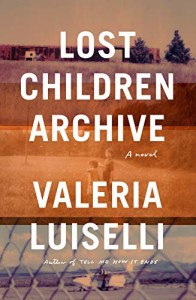 Read this book. Now. Run, don’t walk. This Man Booker Longlisted novel is both urgently of the moment, and achingly timeless. A patched together family of unnamed members, a mother, a father, a daughter and a son, get in a car to drive across America. It is in some ways an epic American road novel of discovery, myth-making, and in this case also myth-breaking. The parents are both involved professionally in recording sounds for the purposes of creating stories and documentaries, though their particular interests are in different areas. The mother, spurred by her distress about lost children in the midst of the current refugee and immigration crisis, is determined to tell a story about what is happening with children currently trying to enter this country. The father wants to tell the story of the Apache, to examine the reality versus the myth of what happened to the people who were the original inhabitants of this land and for whom we are the ones who came, uninvited and unwelcome. This is a story about the history and future of a particular family, and it is a story about a the history and future of this country. It is heartbreaking, and gorgeously written, with a kind of poetic repetitive beat that drives the narrative even at its most quotidian. But wait – there’s more. The story is told from several points of view, and includes lists, and so many names of books and writers, and a story within the story, and descriptions of photographs, and sounds, so many sounds and echoes of sounds that it feels like a multi-sensory experience as well as one of those never-to-be-forgotten interdisciplinary college classes that dizzyingly ties everything together in ways formerly unimaginable. A wise friend recommended that I listen to the book rather than read it, something I almost never do with fiction, but I listened to her advice and now I understand why. So that’s my recommendation as well – this is a book to listen to. Try it and you’ll see why.
Read this book. Now. Run, don’t walk. This Man Booker Longlisted novel is both urgently of the moment, and achingly timeless. A patched together family of unnamed members, a mother, a father, a daughter and a son, get in a car to drive across America. It is in some ways an epic American road novel of discovery, myth-making, and in this case also myth-breaking. The parents are both involved professionally in recording sounds for the purposes of creating stories and documentaries, though their particular interests are in different areas. The mother, spurred by her distress about lost children in the midst of the current refugee and immigration crisis, is determined to tell a story about what is happening with children currently trying to enter this country. The father wants to tell the story of the Apache, to examine the reality versus the myth of what happened to the people who were the original inhabitants of this land and for whom we are the ones who came, uninvited and unwelcome. This is a story about the history and future of a particular family, and it is a story about a the history and future of this country. It is heartbreaking, and gorgeously written, with a kind of poetic repetitive beat that drives the narrative even at its most quotidian. But wait – there’s more. The story is told from several points of view, and includes lists, and so many names of books and writers, and a story within the story, and descriptions of photographs, and sounds, so many sounds and echoes of sounds that it feels like a multi-sensory experience as well as one of those never-to-be-forgotten interdisciplinary college classes that dizzyingly ties everything together in ways formerly unimaginable. A wise friend recommended that I listen to the book rather than read it, something I almost never do with fiction, but I listened to her advice and now I understand why. So that’s my recommendation as well – this is a book to listen to. Try it and you’ll see why.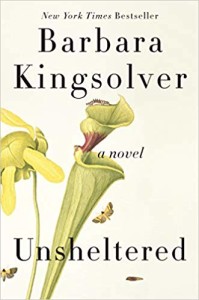 I love Barbara Kingsolver’s writing but this should have been a better book. I don’t regret reading it. But it seemed as if, because Kingsolver is such a successful author, that it didn’t get the editing it should have gotten. The concept is great. There are two parallel stories occurring in the same place, a century apart, in Vineland, New Jersey. Kingsolver has great material to work with here – Vineland has an interesting history. But the story felt too forced and too much in service about making a point about the state of the world in which we’ve found ourselves today, and the dire consequences that we will facing shortly if we don’t change our ways. In both stories. a literal house and a way of life are falling apart. Can either be saved is the question asked in both stories, and the answer is not a good one in either. But the stories are filled with interesting characters and possibilities for transformation, moments of aching tenderness and beautiful descriptions of nature. All of that made it possible to get through a book that desperately needed to be shorter and sharper.
I love Barbara Kingsolver’s writing but this should have been a better book. I don’t regret reading it. But it seemed as if, because Kingsolver is such a successful author, that it didn’t get the editing it should have gotten. The concept is great. There are two parallel stories occurring in the same place, a century apart, in Vineland, New Jersey. Kingsolver has great material to work with here – Vineland has an interesting history. But the story felt too forced and too much in service about making a point about the state of the world in which we’ve found ourselves today, and the dire consequences that we will facing shortly if we don’t change our ways. In both stories. a literal house and a way of life are falling apart. Can either be saved is the question asked in both stories, and the answer is not a good one in either. But the stories are filled with interesting characters and possibilities for transformation, moments of aching tenderness and beautiful descriptions of nature. All of that made it possible to get through a book that desperately needed to be shorter and sharper.

